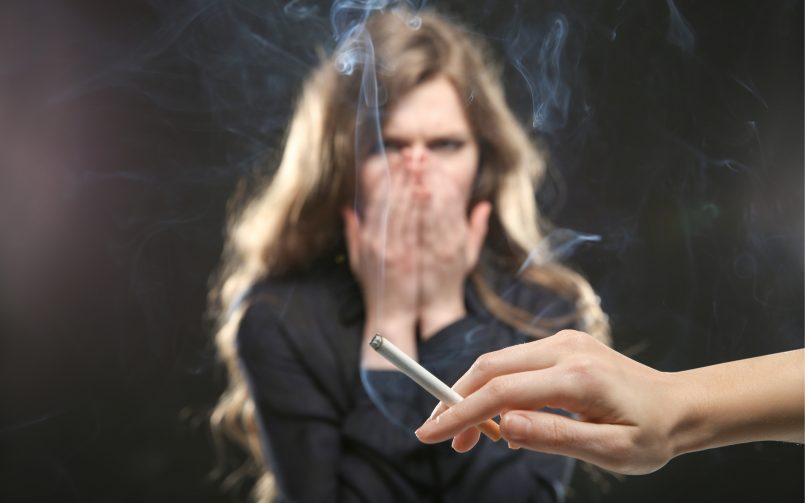Second hand smoke is the smoke that comes from burning tobacco and is exhaled by the smoker and unknowingly inhaled by the surrounding people. It contains more than 4000 chemical constituents, more of which are causing respiratory infection and some of them are considered to be carcinogens.
The United States Environmental protection agency (USEPA) has categorized this smoke as a class A carcinogen with others such as Arsenic, Asbestos, benzene. This smoke is non filtered, and the number of carcinogens it contains is more than the smoke inhaled by a normal smoker. The smoke of a cigarette usually comes from the tip of the cigarette and through hot vapor coming out of the cigarette and its filter.
About 70-80% of second hand smoke is through the burning tip of cigarettes that contains nicotine, carbon monoxide, tar, and various other carcinogens. Therefore, continuous exposure to the second hand smoke is rather more harmful than directly smoking a cigarette for the same time period.
Harmful effects of second hand smoke
Instant effects – headache, sore throat, cough, nausea, eye irritation
Long term effects
The major reason for lung cancer to a nonsmoker is exposure to second hand smoke. Studies revealed that hospitality staff who are exposed to second hand smoke frequently develops the risk of lung cancer faster than a normal smoker.
Second hand smoke can block the arteries resulting in cardiovascular diseases like hypertension, atherosclerosis. Studies shows that second hand smoke twice increases the chance of heart attack.
Non smokers who are exposed to second hand smoke have high chances of getting stroke when compare to non exposed people.
Studies show that non smokers exposed to second hand smoke are at greater risk of developing asthma. Even the people who are exposed to this smoke at home can develop a risk for asthma. For individuals who already have asthma, exposure to second hand smoke decreases their lung capacity.
Second hand smoke could also result in developing breast cancer in women.
Effects on Children's
Children who are exposed to second hand smoke from their smoker parents in their early years of life can develop asthma, bronchitis, and other respiratory infections later in their life.
Second hand smoking can also responsible for behavioral or nasal problems found in children.
This also increases the chances of developing cancer in their childhood.
Effects on Fetus
Women who smoke during pregnancy generally give birth to pre mature babies or babies with a lower weight.
The lungs are a little smaller of these babies than the babies of women who haven’t been exposed to second hand smoke.
They are more susceptible to illness in their later life and can be addicted to tobacco in their future.

 “Studies shows that exposure to second hand smoke is much more dreadful than normal smokingâ€
“Studies shows that exposure to second hand smoke is much more dreadful than normal smokingâ€









.jpeg)



















.jpg)
.jpeg)